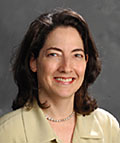Deputy Managing Editor Melissa McCoy last week distributed The Times' Taste and Obscenities policy, and as her cover note to the staff said, the biggest change is that the guidelines now look more closely at online content. What hasn't changed is the overall goal: "to maintain a clean, dignified and civil tone."
So much of what The Times publishes now lives in the Wild West of the Web, where practices differ considerably from the relatively staid world of print. That's why, starting some 18 months ago, a Standards and Practices Committee was convened to consider how The Times might change various editing and publishing procedures. When it comes to cussing, the group saw no reason to lower the standards from the ruling that has existed since the guidelines came out several years ago.
That's the reason, for example, a story on Dec. 16 in Calendar in the midst of the writers strike quoted veteran Letterman writer Bill Scheft as saying that "David Letterman, on the air without writers . . . is the greatest ally the writers would ever have, because he would rail nightly. He could be more influential as an on-air stone in people's shoes. "
In fact, what Scheft had said to reporter Matea Gold was, "David Letterman, on the air without writers, pissed off, is the greatest ally the writers would ever have, because he would rail nightly. He could be more influential as an on-air stone in people’s shoes."
"Pissed off" is among crude language regularly removed from Times coverage as part of what McCoy acknowledges is "a conservative standard" when it comes to publishing coarse or vulgar remarks. When the copy desk suggested the deletion and pointed to the guidelines (noting that "the rest of the quote is still strong and conveys the point"), the editor of the piece, Kate Aurthur, agreed to use the ellipsis but was disappointed. She says she finds the policy "infuriating": "As a media organization," she writes in an e-mail taking issue with the newly released policy, "we should certainly have high standards -- above all, to accuracy. To that end, we should reflect the world as it is, even if we don't like how people talk sometimes. I would argue that being able to quote someone in full goes to that most important goal of accuracy, rather than what is to me a slightly scolding, prudish language policy. We might pretend otherwise, but changing that quotation changed its meaning. Why would we ever do that?"
Along with Aurthur, a few other staffers also argue that the paper's role is to reflect the community and greater society. To that, the policy says this: "We acknowledge that a wide range of vulgarities are commonplace on the Internet and elsewhere, but we intend to maintain a much higher standard." And the subjective nature of editing means even those who support that goal differ -- an editor or writer who might flinch at allowing "he sucks" in a story might not hesitate at allowing the word "hell," or vice versa.
Clark Stevens oversees the style and usage guidelines at The Times and has his own take on the use of an ellipsis in the quote about Letterman: " 'Pissed off' is an interesting example because it's on the borderline. It's not, in itself, obscene, but it is a crude colloquialism. Would it offend some readers? A few, no doubt, but probably only mildly. It's a phrase we've all heard, and most of us have used. But is it essential to the story (or the quotation) here, and is it consistent with the overall tone and image we want to project to our readers? I think that's where conservative judgment prevails in favor of not using it. But it's a close call and a subjective one, with no hard and fast rule to govern it. And there shouldn't be a hard and fast rule. We depend on the very wide range of often conflicting opinions of writers and editors here to ultimately come up with language that is clear and accurate, evocative and contemporary, refined but realistic."
The policy for the first time takes into account the online world vs. the print world. As McCoy wrote in her cover note to staff when she distributed the updated guidelines on obscenity and taste, "A less formal voice may be appropriate in online stories and on blogs (as is often the case in feature stories too), but a conversational style is not an invitation to abandon The Times’ high standards by introducing gratuitous obscenities."
So whether it's on latimes.com or in print, curse words and crude language are supposed to be used only when they are essential to conveying an important point of the story. As just one example of a very complex issue, The Times might quote obscenities used by an elected official if they were spoken in the middle of a campaign in which he's portraying himself as a family man.
The policy follows below, or can be found at this link.


 Readers' representative Jamie Gold has worked in the readers' representative office since 1999. She was appointed readers' representative in 2001.
Readers' representative Jamie Gold has worked in the readers' representative office since 1999. She was appointed readers' representative in 2001.
 Assistant readers' representative Kent Zelas has been assistant readers' representative since 2003.
Assistant readers' representative Kent Zelas has been assistant readers' representative since 2003.